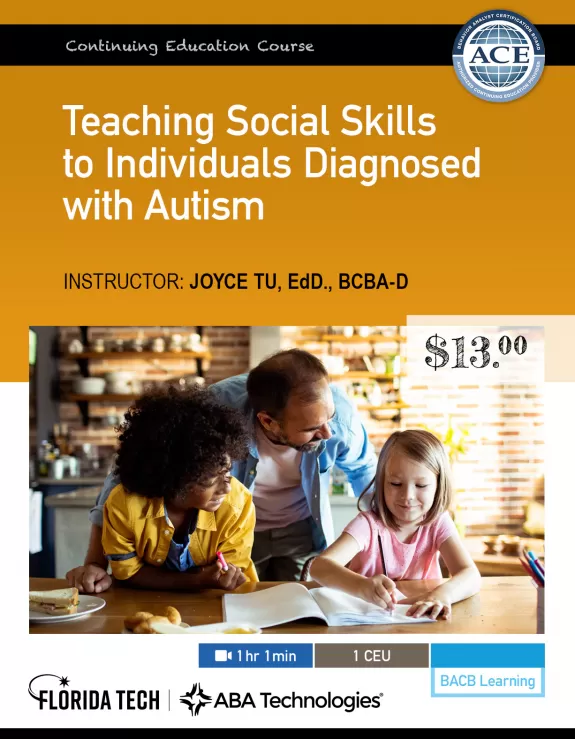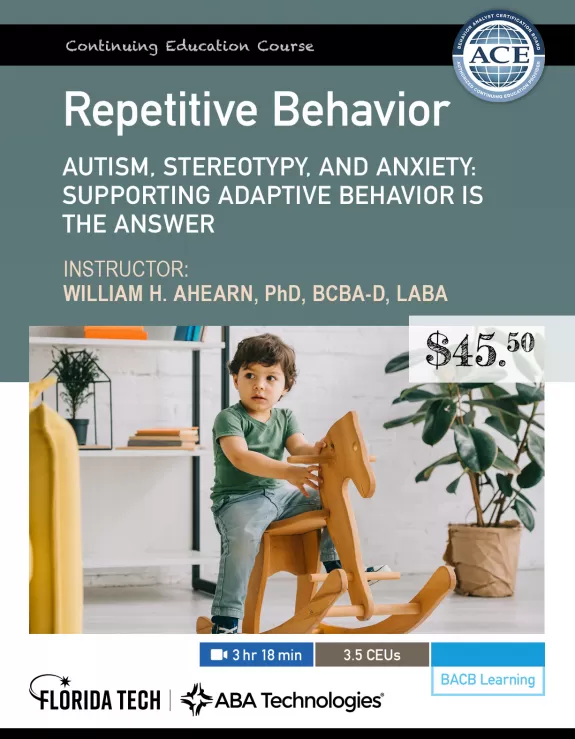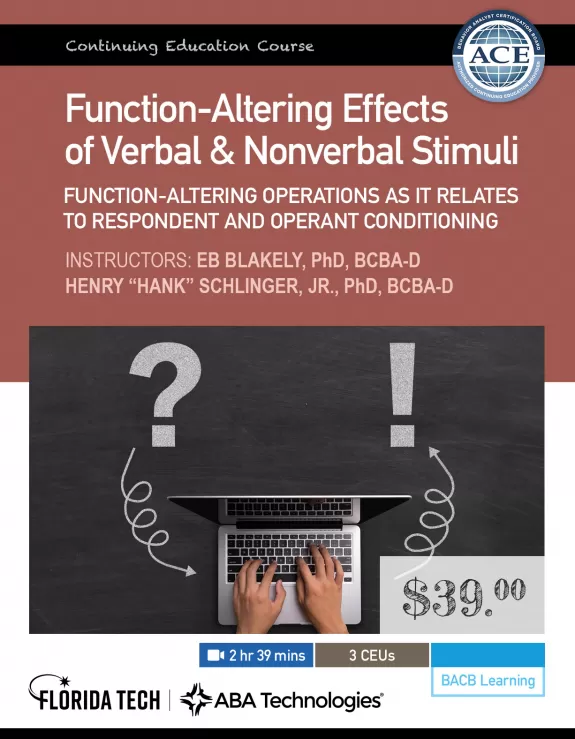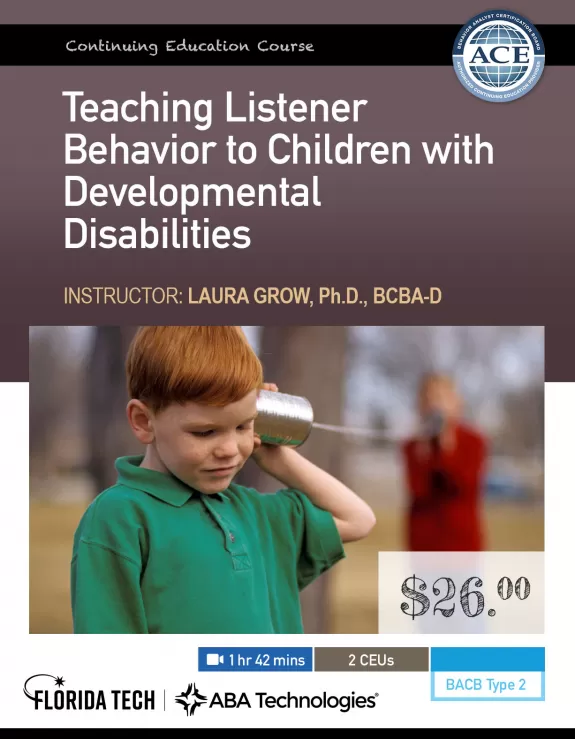Teaching Social Skills to Individuals Diagnosed with Autism
Abstract
There is evidence of great success with social skills programs for increasing appropriate social interactions in individuals with autism. Joyce Tu advocates for such programs by identifying research-based practices that should be included in social-skills programs and strategies that practitioners and parents may use to help their clients without access to such programs. Through an understanding of Skinner’s Verbal Behavior, she descriptively identifies how to teach autoclitics to enhance social, verbal behavior.
Learning Objectives
What you’ll learn in the course and be able to do afterward
- With a complete definition of social skills, you will be able to list two types of social skills assessment tools; identify social, verbal behaviors and social nonverbal behavior; describe what strategies work best in social settings.
- Given the prior research of social skills groups, you will be able to structure a schedule of effective use of time during a social-skills meeting.
- After this course, you will be able to define and give examples of effective implementation for each of the following interventions: social stories, correspondence training, video modeling
- With a complete description of verbal behavior, you will define autoclitic; dentify three characteristics of autoclitics; explain three teaching methods for teaching autoclitics.
Partnership
This course is delivered through Florida Tech. Clicking "Enroll Now" will take you to Florida Tech’s website where you can Add to Cart, Checkout, and complete the course. Come back to our website for podcasts, blogs, courses, and content.




